Life’s twilight years can be as golden for our feline companions as they are for us, brimming with warmth, wisdom, and well-earned tranquility. This phase, however, brings its own set of challenges and needs.
Like an old sweater worn thin with love, our senior cats require a gentle touch and a little extra TLC. This article is your guide to understanding and navigating the journey of senior cat care, a roadmap to ensuring that their sunset years are as vibrant as a summer’s eve.
Understanding Senior Cats: The Aging Process
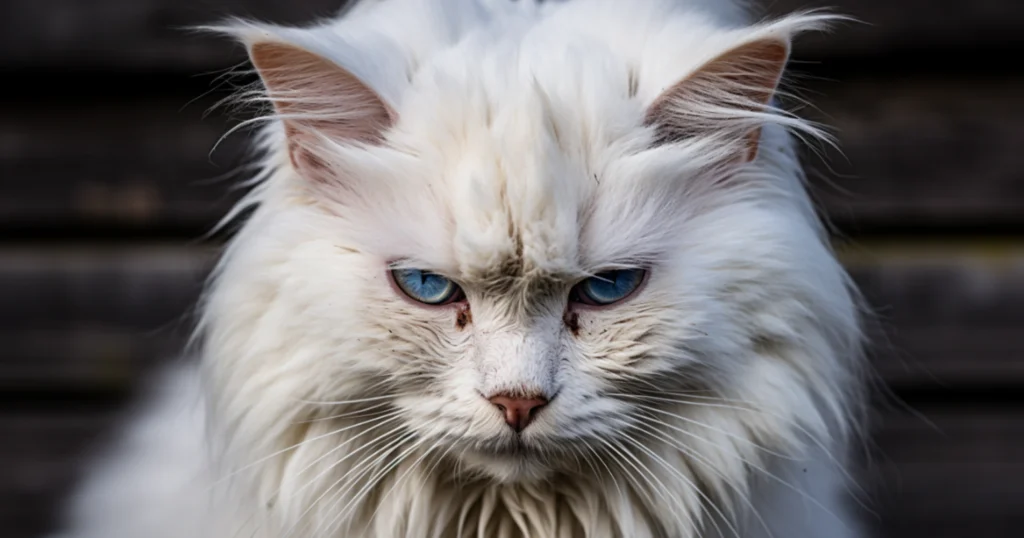
Every cat, like a well-loved storybook, has its chapters. And just as kittens scamper into adolescence, so too does adulthood gently give way to the golden years. Understanding the aging process in cats is essential to providing the care they deserve. Generally, a feline is considered ‘senior’ around the age of 11 to 14 years.
As they age, cats undergo a multitude of changes. Their metabolism may slow down, leading to weight gain or loss. Their senses – sight, hearing, taste – may not be as sharp as in their younger days. You might notice them sleeping more, their once sprightly leaps turning into cautious steps. This is all a natural part of the aging process, a gentle decrescendo in the symphony of their lives.
Health Management for Senior Cats
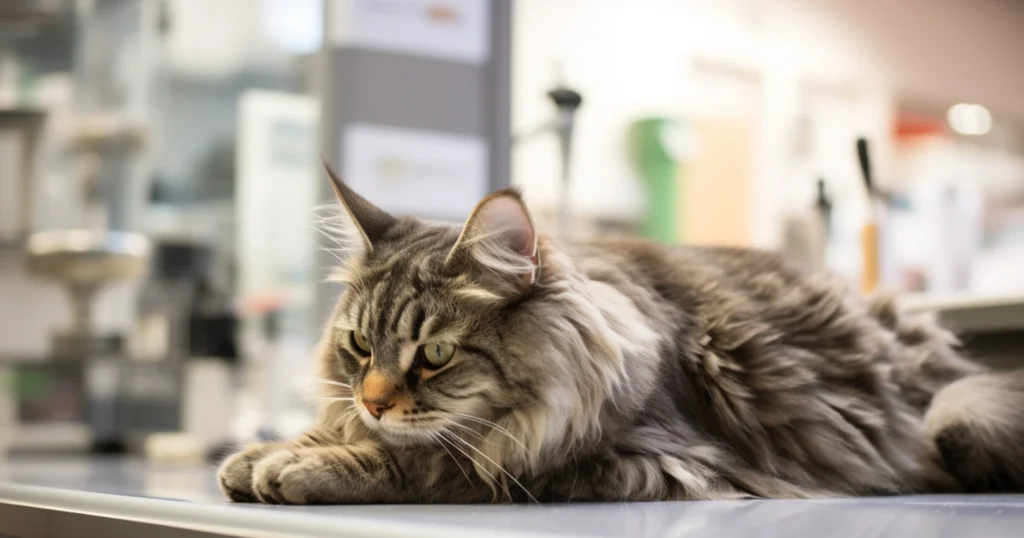
As our feline friends step into their senior years, health management becomes a crucial aspect of their care.
Regular Vet Visits and Wellness Checkups
Just as we humans need regular check-ups as we age, so do our feline friends. Schedule a wellness checkup for your senior cat at least twice a year. These visits are vital to catch potential health problems early on, ensuring your cat’s golden years are indeed golden. Plus, your vet can provide tailored advice to help you navigate this new chapter of your cat’s life.
Monitoring for Signs of Illness and Pain
Senior cats may turn into masters of disguise, hiding their discomfort with a stoic grace. Keep an eye out for subtle changes – alterations in eating habits, litter box use, or unusual behaviors. Early detection of illness or pain can make a world of difference in your cat’s comfort and health.
Considering Pet Insurance
Pet insurance for senior cats is a prudent consideration. It offers financial support for unexpected veterinary costs, especially as older cats are more prone to health issues. It’s peace of mind in your pocket, allowing you to focus on what matters most – caring for your cat.
Maintaining a Healthy Weight
A balanced diet is key to maintaining a healthy weight for your senior cat. Obesity can lead to a host of health issues, while weight loss could signal underlying problems. Regular weigh-ins, coupled with a vet-approved diet, can ensure your cat stays healthy and active.
Remember, as their caretaker, your intuition and observations are valuable tools in managing your senior cat’s health.
Nutrition for Senior Cats
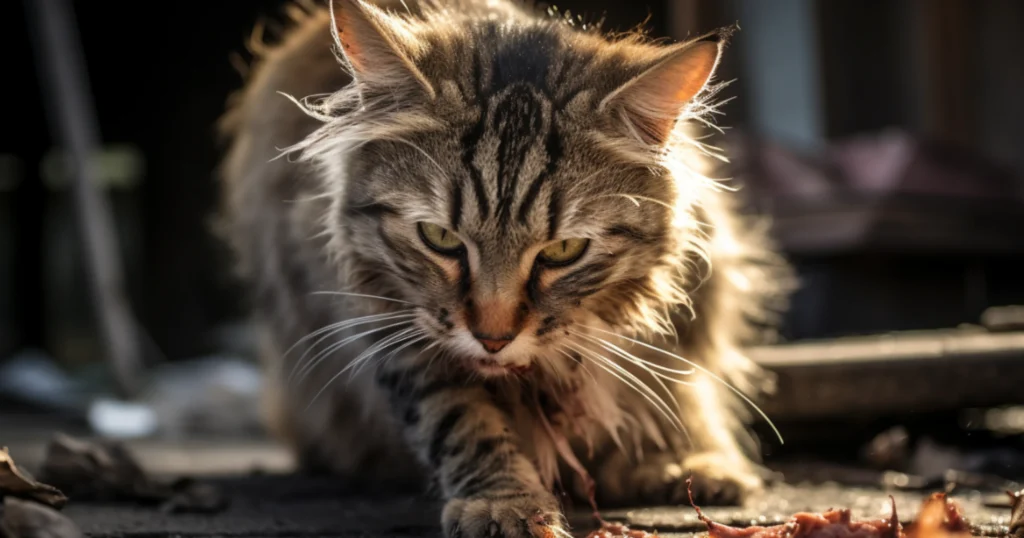
Just as a fine-tuned engine runs best on quality fuel, our senior cats thrive on a well-balanced diet, tailored to their unique needs. As they age, their nutritional requirements shift. While kittens need fuel for growth, seniors need a diet that maintains their health and supports their slower metabolism.
A balanced diet for a senior cat focuses on lean protein sources, controlled levels of fats, and carbohydrates that are easy to digest. Important too are vitamins, minerals, and certain antioxidants that support overall health and boost the immune system. Hydration is critical, and wet food can play a vital role in ensuring your senior cat gets enough water.
However, each cat is a world unto itself, with its own unique health profile and dietary needs. This is where your vet comes in. They’re the master chef who knows just the right ingredients for your feline’s health recipe. They can guide you through dietary changes, recommend specific cat foods, and advise on portion sizes.
Exercise and Mental Stimulation for Senior Cats
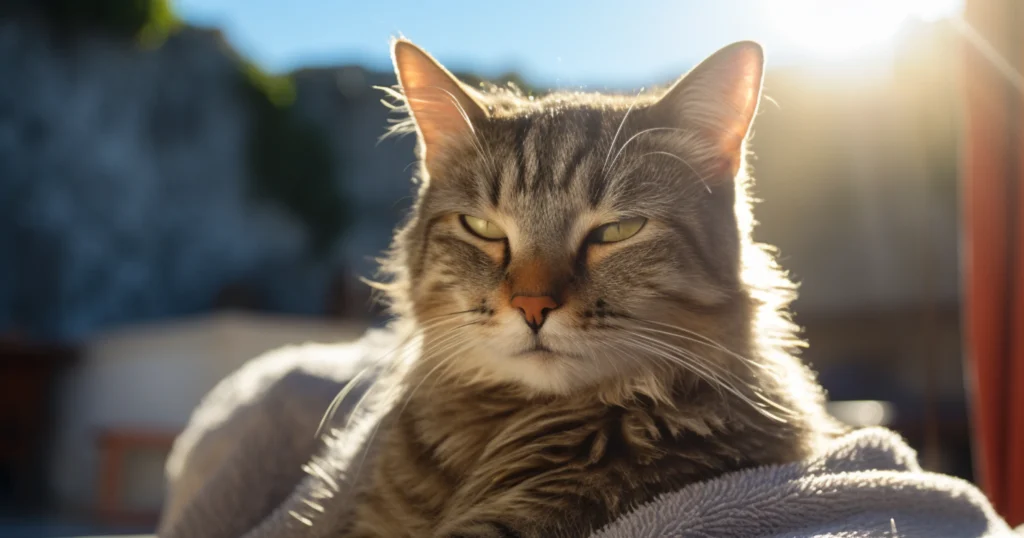
Just because our feline companions are sporting a few extra years doesn’t mean they’ve lost their playful spirit. Keeping senior cats active and mentally engaged is a vital part of their care and wellbeing.
Regular, gentle exercise helps maintain a healthy weight, strong muscles, and supple joints. Something as simple as a leisurely stroll around the garden can do wonders. Or perhaps a gentle game of ‘chase the feather’ can keep their hunter instincts sharp and their bodies nimble.
Mental stimulation is just as crucial as physical exercise. It helps keep their cognitive skills sharp and wards off boredom. Puzzle toys, treat-dispensing toys, or even a simple game of hide and seek with their favorite treats can keep their minds active and engaged.
While we’re at it, remember to respect their pace. Age might have slowed them down, but it hasn’t dimmed their spirit. So, let them set the tempo of their activities. And remember, every bit of exercise and play is also a bonding moment, a shared memory, a stitch in the tapestry of love and trust that binds you two together.
Creating Routines for Senior Cats
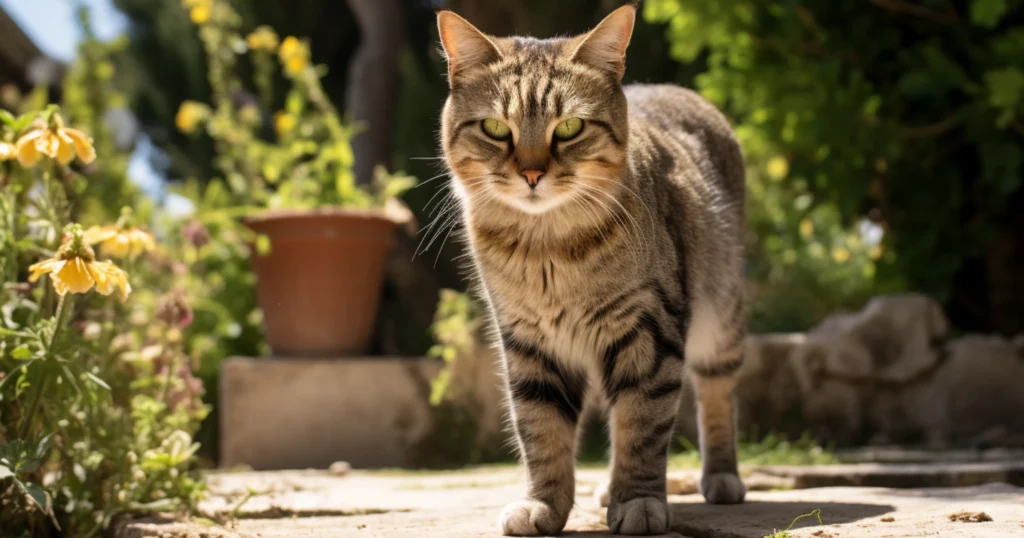
If there’s one thing cats love more than a sunlit window sill, it’s routine. And for senior cats, a consistent routine is not just comforting – it’s crucial.
Our elder feline friends are creatures of habit. A predictable routine provides a sense of security, a rhythm that’s as soothing as a well-loved lullaby. Regular feeding times, consistent play sessions, and a stable sleep schedule can work wonders in keeping them content and stress-free.
Routine also aids in monitoring their health. Regularly scheduled activities make it easier to spot any changes in behavior, appetite, or energy levels – all important indicators of their wellbeing.
Remember, creating a routine doesn’t mean monotony. It’s about creating a safe, predictable environment where your senior cat can thrive. Because at the end of the day, our goal is the same – to make their golden years truly shine.
Emotional Support for Senior Cats
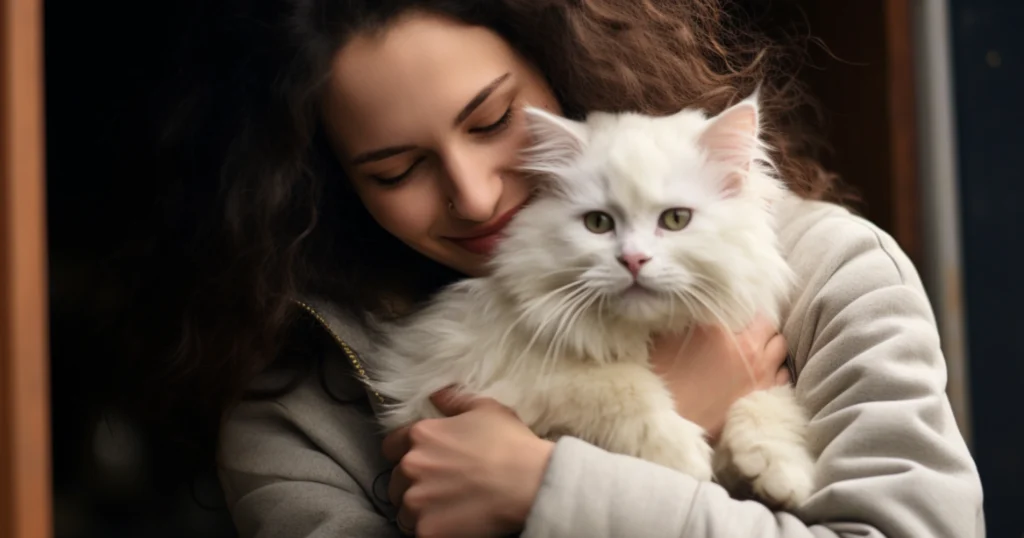
As cats saunter into their senior years, they don’t just need physical care but also a wealth of emotional support. These golden years can be a time of change for them, and your affection can serve as a comforting constant.
Cats, despite their reputation for independence, are emotional beings. They thrive on the love and companionship of their human family. Regular interaction, be it through play, grooming, or simply a cozy cuddle session, can make them feel loved and secure.
Understanding their unique needs and showing patience can also go a long way. If they’re slower to jump or less eager to play, adjust your expectations and appreciate their company in quieter moments.
Above all, cherish the bond you share. Your emotional support can enhance their quality of life and bring joy to their days. After all, there’s no purr quite as content as that of a loved and cherished senior cat.
Environmental Enrichment for Senior Cats
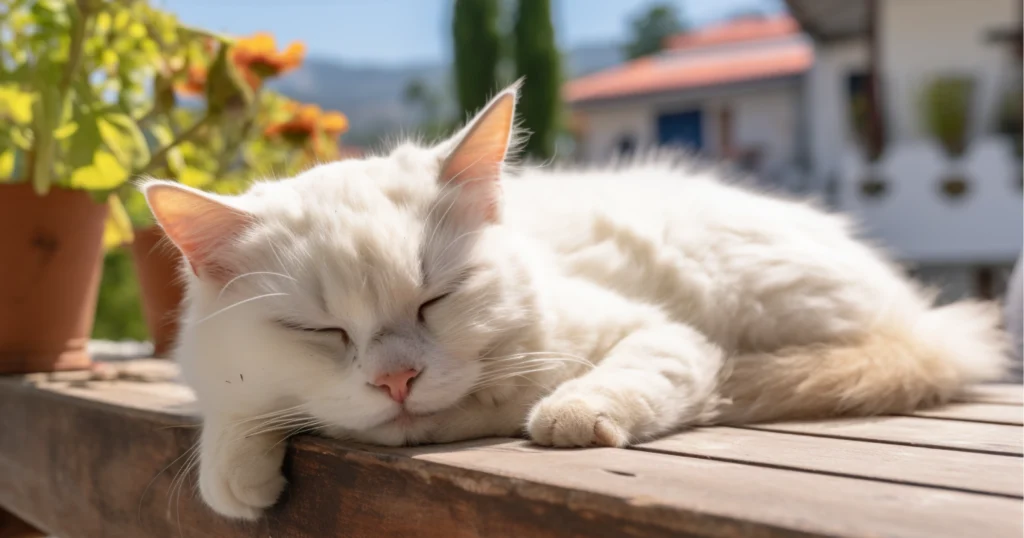
The world of a senior cat should be like a well-curated museum – rich, engaging, and accessible. Environmental enrichment plays a pivotal role in their wellbeing, making their surroundings not just comfortable but stimulating.
Start with accessibility. As cats age, they may not have the same spring in their step. Ramps or pet stairs can help them reach their favorite spots. Warm, cozy beds in quiet corners can offer them a peaceful retreat.
Next, engage their senses. Toys that stimulate their natural hunting instincts, such as puzzle feeders, can keep them mentally sharp. Bird feeders outside windows can offer visual stimulation, a ‘cat TV,’ if you will. Gentle, interactive toys can keep them physically active at a comfortable pace.
Don’t forget social enrichment. Companionship, be it from you or a friendly pet sibling, can offer emotional engagement. Regular play and cuddle sessions can strengthen your bond and keep them socially active.
In essence, creating an enriching environment for senior cats is about understanding their needs and adapting their surroundings to meet them. It’s about making their golden years truly enriching
Conclusion: Providing Personalized Care for Your Senior Cat
As we journey through the chapters of our senior cats’ lives, every page turned is a testament to our love and commitment. We’ve explored the aging process, understood the importance of health management, and considered the value of pet insurance. We’ve underscored the significance of a balanced diet, regular exercise, mental stimulation, and the comfort of routines. We’ve delved into the crucial role of emotional support and how an enriched environment can enhance their golden years.
Yet, at the heart of it all is the understanding that each senior cat is a unique individual, with their own set of needs and preferences. Therefore, personalized care becomes the cornerstone of their wellbeing. Consulting with your veterinarian, the sage guide on this journey, is invaluable. They can provide personalized advice, dietary recommendations, and health management strategies tailored to your senior cat’s specific needs.
Caring for a senior cat may require a bit more effort, a touch more patience, but every purr, every gentle nudge of affection, makes it all worthwhile. It’s a labor of love, a shared journey that enriches not just their lives but ours as well. So here’s to our senior feline companions, to their twilight years filled with warmth and contentment. Here’s to creating a world for them as loving as the one they’ve created for us.


